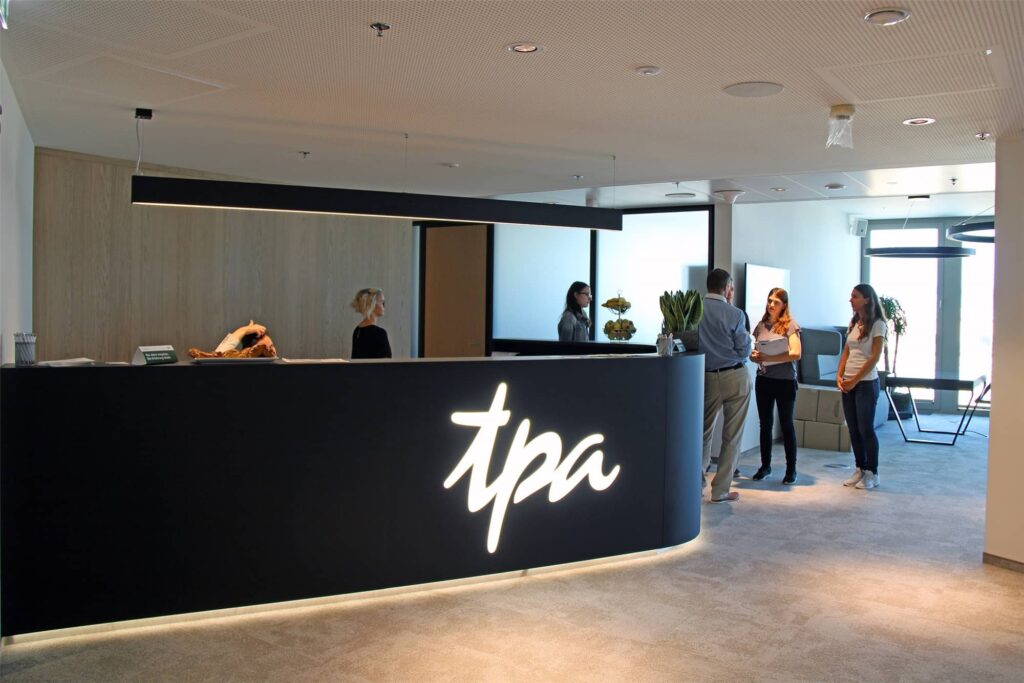TPA Wien | Wiedner Gürtel 13, Turm 24, 1100 Wien
ESG & Digital Transformation
Hier Anmelden Wir freuen uns, Sie zu einer spannenden Diskussion einzuladen, bei der der Vorstandsvorsitzende der AGRANA, Norbert Harringer, und der Vorstand...
Unsere Expertinnen und Experten kennen Ihre
Branche
und verstehen, was Sie brauchen.
So können Sie jetzt noch Steuern sparen!
Unsere Steuerexperten Monika Seywald, Wolfgang Höfle und Gottfried Sulz haben für Sie die wichtigsten Steuerspartipps 2023 zum Jahresende zusammengefasst und übersichtlich dargestellt.
Holen Sie sich Ihre Ausgabe und profitieren Sie von den Tipps der TPA Steuer-Experten, die Ihnen dabei helfen, Steuern zu sparen.
Unsere Expert:innen informieren Sie über alle wichtigen Steuer-Änderungen!
Steuerberatung

14. Mai 2024
MAXX by Steigenberger | Margaretengürtel 142 | 1050 Wien
Mit der Manz Jahrestagung Unternehmensbesteuerung 2024 widmet sich TPA Steuerberatung in einem jährlich stattfindenden Format aktuellen Fragestellungen im n...
Immobilien

14. Mai 2024
Flughafen Wien, Vienna Airport Conference & Innovation Center
/*! elementor - v3.20.0 - 20-03-2024 */ .elementor-heading-title{padding:0;margin:0;line-height:1}.elementor-widget-heading .elementor-heading-title[class*=...
Digital Advisory & Transformation

15. Mai 2024
TPA Wien | Wiedner Gürtel 13, Turm 24, 1100 Wien
Hier Anmelden Wir freuen uns, Sie zu einer spannenden Diskussion einzuladen, bei der der Vorstandsvorsitzende der AGRANA, Norbert Harringer, u...
Immobilien

17. Mai 2024
Falkensteiner Balance Resort, Panoramaweg, Stegersbach
Das sind die Schwerpunktthemen 2024 Die neue Finanzierungswelt: Finanzierung zwischen Zinsen und InflationChance oder Risiko: Wie verändert sich die Wel...
International

23. Mai 2024
Kempinski Hotel Istria, Kroatien
/*! elementor - v3.17.0 - 08-11-2023 */ .elementor-widget-image{text-align:center}.elementor-widget-image a{display:inline-block}.elementor-widget-image a i...
Unsere Expert:innen informieren Sie über alle wichtigen Steuer-Änderungen!
TPA ist eines der führenden Steuerberatungsunternehmen in Österreich. Unser Angebot umfasst Steuerberatung, Buchhaltung, Personalverrechnung, Unternehmensberatung und mehr!

Mo - Do: 9:00 – 17:00
Fr: 10:00 – 14:00


